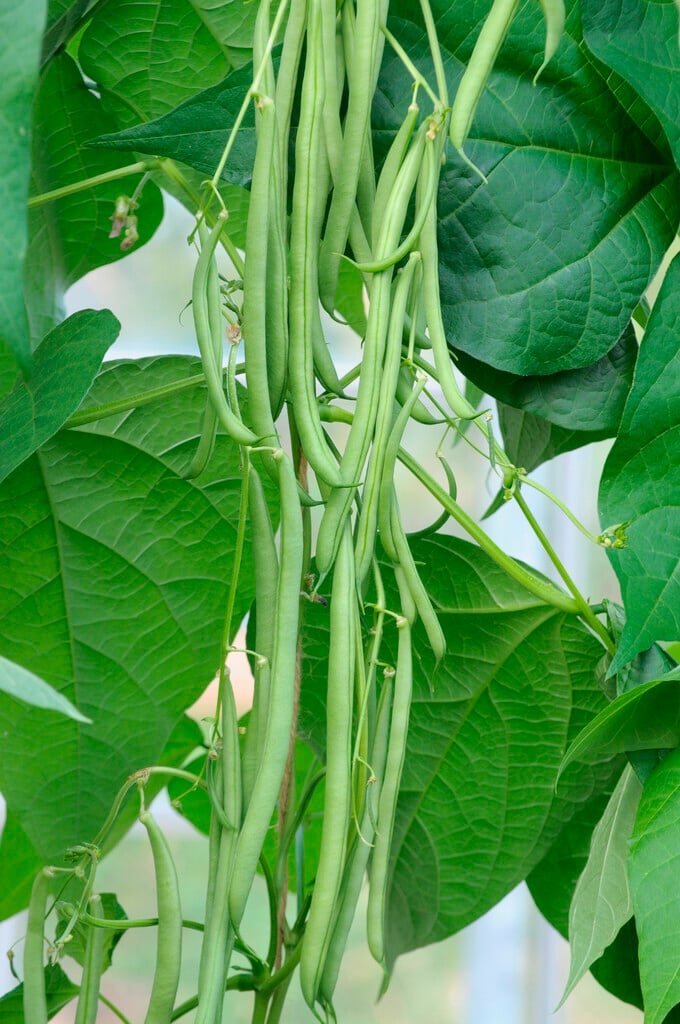Phaseolus vulgaris 'Cobra'PBR
bean (climbing French) 'Cobra'
Most reliable vigorous French bean climber that quickly reaches the top producing ahead of most, a third more beans than other varieties. A long season continous heavy cropper of smooth, round, 7 inches long, sweetly flavoured stringless pods with exceptional flavour. The pale violet flowers in summer are also worthy of the ornamental garden.

Buy this plant
Size
Ultimate height
1.5–2.5 metresTime to ultimate height
1 yearUltimate spread
0.1–0.5 metresGrowing conditions
Moisture
Moist but well–drainedpH
Acid, Alkaline, NeutralColour & scent
| Stem | Flower | Foliage | Fruit | |
| Spring | ||||
|---|---|---|---|---|
| Summer | Purple | Green | ||
| Autumn | ||||
| Winter |
Position
- Full sun
- Partial shade
Aspect
West–facing or South–facing
Exposure
Sheltered Hardiness
H2Botanical details
- Family
- Fabaceae
- Native to GB / Ireland
- No
- Foliage
- Deciduous
- Habit
- Climbing
- Potentially harmful
- Raw pods/beans harmful if eaten. Wear gloves and other protective equipment when handling. Pets (dogs): Raw pods/beans harmful if eaten - see the HTA guide to potentially harmful plants for further information and useful contact numbers
- Genus
Phaseolus are annual or perennial legumes, usually climbing or trailing in form, and with trifoliate leaves. Grown as crop plants for their edible seeds, including runner, French and lima beans, as well as for animal feed, green manures and as ornamentals
- Name status
Accepted
How to grow
Cultivation
Grow up support in any fertile, moisture-retentive soil in good light. For more advice see beans for drying and French bean cultivation
Propagation
Propagate by seed. See sowing vegetable seeds
Suggested planting locations and garden types
- City and courtyard gardens
- Cottage and informal garden
- Patio and container plants
- Climber and wall shrubs
- Flower borders and beds
Pruning
No pruning required
Pests
May be susceptible to black bean aphids. Young plants also need protection from slugs and snails
Diseases
May be susceptible to chocolote spot, Downy mildew, Foot and root rot, Halo blight, Powdery mildews
Love gardening
Sign up to receive regular gardening tips, inspiration, offers and more
View our Privacy Policy
Get involved
The Royal Horticultural Society is the UK’s leading gardening charity. We aim to enrich everyone’s life through plants, and make the UK a greener and more beautiful place.